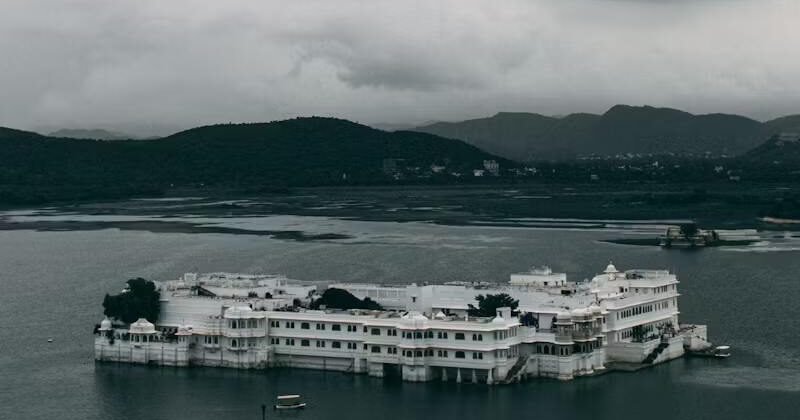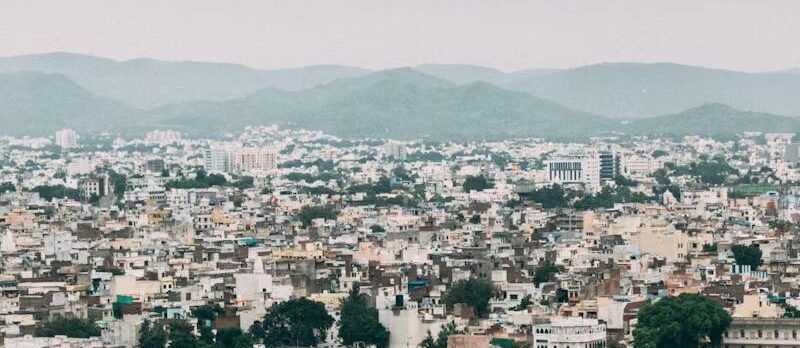Paris, the “City of Lights,” has long been a beacon of culture, art, and romance. Its shimmering boulevards, historic monuments, and vibrant street life continue to enchant visitors from every corner of the globe. Whether it’s the majestic silhouette of the Eiffel Tower against a twilight sky or the quiet charm of a hidden café in Montmartre, Paris has a timeless allure that never fades.
As the city prepares to host the Paris Olympic Games, a new wave of excitement is sweeping through its streets. This historic event adds yet another layer to the city’s rich tapestry, offering visitors not only the chance to explore iconic landmarks but also to experience Paris in the midst of a global celebration. In this article, we’ll take you on a journey through the must-see attractions of Paris, from its world-renowned museums and monuments to the special sites and events linked to the upcoming Olympic Games. Whether you’re a first-time visitor or a seasoned traveler, there’s something new to discover in Paris, especially as it gears up for this momentous occasion.
Iconic Landmarks
Eiffel Tower
No visit to Paris is complete without a stop at the Eiffel Tower, the city’s most iconic symbol. Constructed in 1889 for the World’s Fair, this iron lattice tower was initially met with mixed reactions but has since become one of the most recognizable structures in the world. Standing at 330 meters, the Eiffel Tower offers breathtaking views of the Parisian skyline from its observation decks. Visitors can choose to ascend via elevator or, for the more adventurous, by climbing the 704 steps to the second floor.
Tips for Visiting: To make the most of your visit, consider purchasing tickets in advance to skip the lines. For a truly magical experience, visit the tower at night when it’s illuminated by thousands of sparkling lights. Another popular option is to enjoy a meal at one of the tower’s restaurants, such as the 58 Tour Eiffel or the Michelin-starred Le Jules Verne, both offering spectacular views.
Olympic Connection: As Paris gears up for the Olympic Games, the Eiffel Tower will be a centerpiece of the festivities. Expect the tower to be adorned with Olympic-themed decorations and lights, serving as a stunning backdrop for various events and celebrations. The area around the tower may also host fan zones, live broadcasts of Olympic events, and special exhibitions, making it a vibrant hub of activity during the Games.
Louvre Museum
The Louvre, once a royal palace, is now the world’s largest and most visited museum, housing an extraordinary collection of art and artifacts from around the globe. Its extensive collection spans from ancient civilizations to the 19th century, with masterpieces like Leonardo da Vinci’s Mona Lisa and the ancient Greek statue, the Venus de Milo, drawing millions of visitors each year.
Tips for Visiting: With over 35,000 works of art on display, the Louvre can be overwhelming, so it’s wise to plan your visit in advance. Start with the museum’s highlights, but also take time to explore the lesser-known galleries, which are often less crowded. Consider joining a guided tour to gain deeper insights into the art and history housed within its walls.
Olympic Connection: The Louvre is expected to play a unique role in the Paris Olympic Games, potentially hosting special exhibitions that explore the intersection of art and sports. These exhibitions may highlight the cultural significance of the Olympics through history and art, providing a fascinating perspective on the Games. Additionally, the Louvre’s iconic glass pyramid may be lit up or decorated to celebrate the Olympic spirit.
Notre-Dame Cathedral
Notre-Dame Cathedral, a masterpiece of French Gothic architecture, has stood as a symbol of Paris for centuries. Its construction began in 1163 and took nearly 200 years to complete, resulting in a structure of immense beauty and historical significance. The cathedral is famous for its intricate sculptures, stained glass windows, and the dramatic flying buttresses that support its walls. In 2019, Notre-Dame suffered a devastating fire that caused significant damage, but restoration efforts are underway to return the cathedral to its former glory.
Tips for Visiting: While the interior of Notre-Dame remains closed to the public due to ongoing restoration work, visitors can still admire the exterior and explore the surrounding Île de la Cité. Nearby, you’ll find the Archaeological Crypt, which offers a fascinating glimpse into the history of Paris.
Olympic Connection: As one of Paris’s most iconic landmarks, Notre-Dame will likely be part of the city’s Olympic narrative. There may be Olympic-themed tours that explore the cathedral’s historical connections to previous games, or special events that honor its resilience and significance to the city. The surrounding area could also feature installations or exhibits that tie into the Olympic celebrations, offering visitors a unique way to experience the Games alongside this enduring symbol of Paris.
Attractions Tied to the Paris Olympic Games
Olympic Stadiums and Venues
As Paris prepares to host the Olympic Games, the city is transforming its landscape with state-of-the-art venues that will serve as the heart of the competitions. The Stade de France, located just north of the city, will be the centerpiece of the Games. Originally built for the 1998 FIFA World Cup, this stadium has a capacity of over 80,000 and will host the opening and closing ceremonies, as well as key athletic events.
In addition to the Stade de France, new arenas have been constructed to accommodate various sports. The Paris La Défense Arena, known for its versatility, will host gymnastics and other indoor events. The Roland Garros Stadium, traditionally the home of the French Open tennis tournament, will also play a crucial role, hosting tennis matches during the Games.
Visitor Info: These Olympic venues will be accessible to tourists not only during the Games but also afterward, as they continue to serve as major sports and entertainment facilities. Guided tours of the Stade de France and other venues will likely be available, offering visitors a behind-the-scenes look at the locations where Olympic history is made. For those interested in attending events during the Games, it’s advisable to book tickets and accommodations well in advance, as demand will be high.
Temporary Installations
In the spirit of the Olympics, Paris will be adorned with temporary installations that capture the essence of the Games. Public art projects, including sculptures and murals, will be commissioned to celebrate the athletes and the Olympic values of excellence, friendship, and respect. These installations will be strategically placed throughout the city, turning Paris into an open-air gallery during the Games.
One of the most anticipated installations is the Olympic Rings, which will be prominently displayed in various locations, including the Champ de Mars near the Eiffel Tower. These structures will offer unique photo opportunities for visitors, becoming a symbol of the Games and a way to engage with the event on a personal level.
Visitor Info: The locations of these temporary installations will be spread across the city, encouraging visitors to explore different neighborhoods. Maps and guides will likely be available to help tourists discover these artistic tributes. Whether you’re taking a leisurely stroll along the Seine or visiting a historic site, keep an eye out for these creative displays that celebrate the Olympic spirit.
Historic Sites with Olympic Legacy
Paris has a long and storied history with the Olympic Games, having first hosted them in 1900 and again in 1924. Several sites in the city are linked to these past events, offering a fascinating glimpse into the legacy of the Olympics in Paris. One such site is the Stade Olympique Yves-du-Manoir, which served as the main stadium for the 1924 Summer Olympics. While it no longer hosts major international events, it remains a significant piece of Olympic history.
Another notable site is the Piscine des Tourelles, an Art Deco swimming pool that was built for the 1924 Games. Today, it is still in use and stands as a reminder of Paris’s Olympic past.
Practical Tips for Visitors
Best Times to Visit
Timing your visit to Paris can greatly enhance your experience, especially when considering the influx of tourists during the Olympic Games. The summer months, particularly July and August, are peak tourist seasons, coinciding with the Olympics. While the energy of the city will be at its highest, so will the crowds. If you’re planning to visit during this time, early mornings or late afternoons are ideal for exploring popular attractions with fewer people around.
For those looking to avoid the largest crowds, consider visiting Paris in the late spring (May to early June) or early autumn (September to early October). The weather during these periods is still pleasant, and you’ll find that the city is less crowded than during the peak summer months. If your primary interest is in the Olympics, arriving a few days before the Games begin can give you a head start on sightseeing before the main events start.
Transportation Tips
Navigating Paris during the Olympic Games will require some strategic planning, as the city’s already busy streets and public transport systems will see increased demand. The Paris Métro, RER trains, buses, and trams are all efficient ways to get around the city. The Métro, in particular, is the most convenient option for reaching most tourist attractions and Olympic venues.
Tips for Navigating the City:
- Use Public Transportation: Invest in a Paris Visite travel card, which offers unlimited travel on public transportation for a set number of days. This will save you time and money, especially if you plan to explore multiple areas.
- Plan for Traffic: If you prefer taxis or rideshares, be prepared for potential traffic delays, particularly near Olympic venues. Consider walking or cycling for shorter distances, as Paris is a very walkable city with bike lanes becoming increasingly common.
- Olympic Shuttles: The city may also introduce special shuttle services for the Olympics, connecting key venues and popular tourist spots. Keep an eye out for announcements on these services as the Games approach.
Accommodation Tips
Finding the right place to stay during your visit to Paris is crucial, especially when the city is hosting a major event like the Olympic Games. Depending on your preferences and itinerary, different areas of the city offer unique advantages.
Best Areas to Stay:
- Near Olympic Venues: If you’re focused on attending Olympic events, consider staying near the Stade de France in Saint-Denis or around La Défense, where several venues will be located. These areas provide easy access to the stadiums and are well-connected to the rest of the city via public transportation.
- Central Paris: For those wanting to explore the iconic landmarks while still being within reach of Olympic events, neighborhoods like the Marais, Saint-Germain-des-Prés, or the Latin Quarter offer a great balance. These areas are central, full of charm, and close to major attractions like the Louvre, Notre-Dame, and the Seine.
- Budget-Friendly Options: If you’re looking to save on accommodation, consider staying in areas like Montmartre or the 11th and 12th arrondissements. These neighborhoods offer more affordable lodging options while still being well-connected to the city center and Olympic venues.
Booking Tips:
- Book Early: Due to the high demand during the Olympics, it’s wise to book your accommodation as early as possible to secure the best options at reasonable rates.
- Consider Alternative Accommodations: In addition to hotels, look into vacation rentals or apartment stays, which can offer more space and the comfort of a home-like environment, especially if you’re staying for an extended period.
With these practical tips in mind, you’ll be well-prepared to make the most of your time in Paris, whether you’re there to soak in the culture, catch Olympic events, or both.





